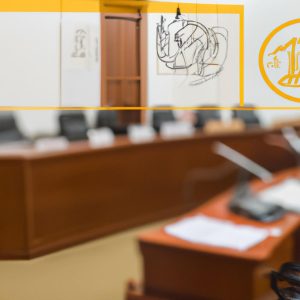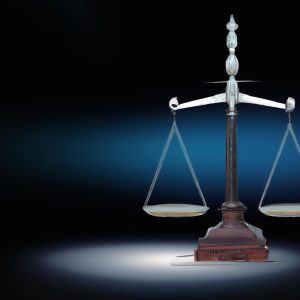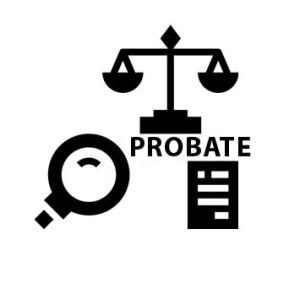As a homeowner, understanding the ownership of your property is paramount in securing your legacy and ensuring peace of mind. One essential document that validates your rightful ownership is the deed to your home. If you find yourself asking, “How do I get a copy of the deed to my home?” look no further. In this article, we will guide you through the necessary steps to obtain this crucial document, providing you with the knowledge and confidence to protect your most valuable asset. At Morgan Legal Group, our team of experienced professionals in estate planning, probate, elder law, wills, and trusts is dedicated to assisting you in navigating the intricacies of property ownership.
Obtaining a Copy of the Deed to Your Home: A Comprehensive Guide
When it comes to understanding the ownership of your home, obtaining a copy of the deed is crucial. The deed is a legal document that proves ownership of the property, and it is important to have a copy on hand for various reasons, such as refinancing, selling the property, or estate planning. Here is a comprehensive guide on how to obtain a copy of the deed to your home.
1. Contact the County Recorder’s Office: The County Recorder’s Office is where all property documents are recorded and stored. You can contact the office either in person, by mail, or online to request a copy of your deed. They may charge a fee for the copy.
Navigating the Process Through the County Clerk’s Office
When seeking to obtain a copy of the deed to your home, the process typically involves visiting the County Clerk’s Office in your area. The County Clerk’s Office serves as the official record keeper for property transactions, including deeds, mortgages, and liens. To navigate this process effectively, it is important to understand the steps involved and what information you will need to provide.
First, you will need to visit the County Clerk’s Office in person or online to request a copy of the deed to your home. Be prepared to provide the property address, owner’s name, and any relevant reference numbers. Additionally, you may need to pay a fee to obtain a certified copy of the deed. Once your request is processed, you will receive a copy of the deed that serves as a legal document proving ownership of the property. Having a clear understanding of the process through the County Clerk’s Office can help you secure important documents related to your home ownership.
Exploring Alternative Options for Accessing Your Home Deed
One option for accessing a copy of the deed to your home is through the county clerk’s office. By visiting the county clerk’s office in person or checking their website, you can obtain a certified copy of your deed. This official document will provide you with vital information about your property ownership, such as the legal description of the property, the names of the current and previous owners, and any restrictions or easements on the property.
Another alternative option for acquiring a copy of your home deed is through a title company. Title companies specialize in researching property ownership records and can assist you in obtaining a copy of your deed for a fee. By enlisting the help of a title company, you can ensure that the document you receive is accurate and up-to-date. Additionally, a title company can provide you with additional services, such as title insurance, to protect your property rights. Here is a comparison of the two options for accessing your home deed:
| Accessing Method | County Clerk’s Office | Title Company |
|---|---|---|
| Cost | Affordable | Expensive |
| Convenience | Inconvenient | Convenient |
| Accuracy | Official copy | Professional review |
One option is to contact the county recorder’s office in the county where your property is located. You can request a copy of your deed from their office, either in person or online. Another option is to reach out to the title company that helped you with the purchase of your home. They may have a copy of the deed on file. Additionally, you can consult with a real estate attorney who can assist you in obtaining a copy of your deed and provide guidance on how to protect and safeguard your home ownership documentation for the future.
Q&A
Q: How do I obtain a copy of the deed to my home?
A: If you’re in need of a copy of your home’s deed, the first step is to contact the county recorder’s office in the location where your home is located. They will have a copy of the deed on file that you can request.
Q: Are there any fees associated with obtaining a copy of the deed?
A: Yes, there may be a small fee associated with obtaining a copy of the deed. Be sure to inquire about this when you contact the county recorder’s office.
Q: What information will I need to provide in order to obtain a copy of the deed?
A: You will likely need to provide your name, the address of the property, and any other relevant details that may help the county recorder’s office locate the deed.
Q: Can I request a copy of the deed online?
A: Some county recorder’s offices may offer the option to request a copy of the deed online. Check with the specific office in your area to see if this service is available.
Q: How long does it typically take to receive a copy of the deed once it is requested?
A: The time it takes to receive a copy of the deed can vary depending on the county recorder’s office and their processing times. It’s best to inquire about this when you request the deed.
Q: Is it important to have a copy of the deed to my home?
A: Yes, having a copy of the deed to your home is important for a variety of reasons, including proving ownership, making property improvements, and for legal purposes. It’s a good idea to keep a copy on hand for reference.
Concluding Remarks
So there you have it, obtaining a copy of the deed to your home doesn’t have to be a daunting task. By following the steps outlined in this article, you can easily secure a copy of this important document and have peace of mind knowing that you have all the necessary paperwork for your property. If you have any further questions or need assistance, don’t hesitate to reach out to your local county recorder’s office for guidance. Good luck on your quest for the deed!






